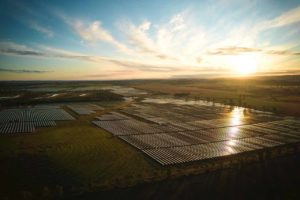In a major shift from some of the world’s largest funders of coal power, new policies should rule out financial support to a third of the coal-fired power stations currently under consideration by Japan’s three major commercial banks, Sumitomo Mitsui Banking Corporation (SMBC), Mitsubishi UFJ Financial Group, Inc. (MUFG) and Mizuho Financial Group (Mizuho).
Japanese institutions are among the largest financiers of coal power plants worldwide and were negotiating to finance ten new coal power plants in Vietnam, Mongolia, Myanmar and Bangladesh.
Totalling 10.1 GW of coal-fired power if built, the stations would produce total CO2emissions of 1.6 billion tonnes.
But their new policies to limit financial support to power plants that use ultrasupercritical technology should force their withdrawal from close to 30% of these projects.
Banking giant SMBC should be required to end discussions on providing financial support to three coal stations, Morupule in Botswana, Tavan Tolgoi in Mongolia and Van Phong 1 in Vietnam, all of which would be built with highly polluting ‘subcritical’ or ‘supercritical’ technology.
Alongside SMBC, the policies of MUFG and Mizuho would also require the banks withdraw from potential financial support to Morupule in Botswana and Van Phong 1 in Vietnam.
Van Phong 1, which financial sources state is in line to reach financial close shortly, will be the first test of the banks’ new policies.
Whilst information has not been made publicly available, it is also highly likely a further three stations in Vietnam will also fail to meet the new sustainability standards,removing funding for some of the most polluting coal power stations currently in the global pipeline
Of course, the credibility of the new policies rests on whether they are followed through. In responses to Bloomberg today, the banks were giving little away, but pressing on with finance would leave an embarrassing black mark on the newly minted policies and raise questions about the banks’ willingness to honour their commitments.
Back in 2015, the World Bank called the coal expansion in Southeast Asia a ‘disaster for the planet’ which threatens to overwhelm the Paris climate deal.
While the shift to rule out all but the most polluting coal power plants is a step forward, it is still not in line with the science of climate change and staying below 2ºC.
Published peer-reviewed academic research from Oxford University has shown that “…even under the very optimistic assumption that other sectors reduce emissions in line with a 2°C target, no new emitting electricity infrastructure can be built after 2017 for this target to be met, unless other electricity infrastructure is retired early or retrofitted with carbon capture technologies.”
Other Japanese financial institutions have recognised this, as insurers Daiichi Life and Nippon Life have introduced policies that rule out support for new coal regardless of the technology type.
While there is still further to go, the direction of travel of finance from coal to clean energy is speeding up.
Bernadette Maheandiran, Market Forces Legal Analyst











